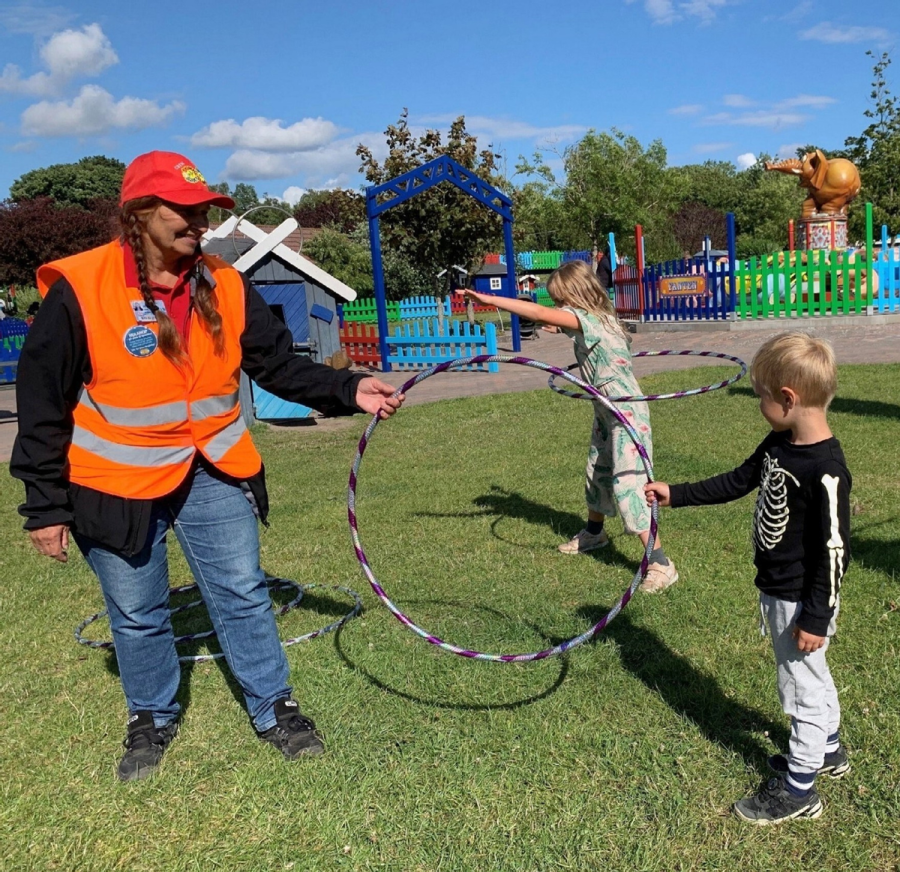Danish Amusement Park Cleverly Weathers the COVID-19 Storm

As COVID-19 made a profound impact on attractions around the globe, family-owned facilities found the need to be pragmatic in their choices. Their resiliency was met with creativity when keeping employees (and guests) optimistic.
Such is the case with Sommerland Sjaelland in Nørre Asmindrup, Denmark. Kåre Dyvekaer, the park’s CEO who shares its ownership with his wife, Mette, describes some of the things they’ve done to weather the coronavirus storm.
“The fact that Danish people could not travel made our home market very important,” says Dyvekaer. “During the first COVID-19 incident in Denmark (spring 2020), we had cancellations and had to move or pay back bookings. Then about two months later, bookings skyrocketed.”
When the park opened for the summer season, there were government guidelines to follow in order to remain open. But he says the park also had to limit in-park attendance to avoid negative feedback on social media.
“In order to do our best to facilitate safety in as many ways possible, we put on extra staff in rides, sales places, but most importantly, in the park as Hula Hoop Officials.”
The hula hoops were a clever way Sommerland Sjaelland promoted social distancing. The park purchased 1,000 hula hoops as a friendly reminder to people to keep a comfortable distance from one another. If everyone in the park was hula hooping, they’d have to keep distance between themselves.
“We instructed our employees and guests to say, ‘Hula hoop,’ and use the OK sign as a hula hoop sign to let other people know that they’re getting to close,” he says. “We think that it’s funnier to say, ‘Hula hoop,’ to each other than it is to say, ‘Keep your distance.’”
Dyvekaer says it took positive attitudes among his staff to make the plan work. He observes that his staff came together as a close “family,” and his wife made online videos to present their core values and plans.
“Our HR (human resources) department did a great job in making the material as fun and accessible as possible,” Dyvekaer says. “We used our internal Facebook to give fun and entertaining angles on things like ‘How to disinfect your area and how not to do it.’”
He notes that even small adjustments were important to the family-owned park, like postponing marketing plans; reducing maintenance costs where safely possible; canceling an order for a huge grass mower, opting instead to reuse an older mower for another year; and using gravel in an area where Dyvekaer had originally planned to lay new asphalt. Dyvekaer says since the park received some financial assistance from a government program—for which he’s quite grateful—he expects to show only a small loss for 2020.
As for 2021, he says, “I cross my fingers that the timing for opening up outdoor facilities will match my planned opening in mid-May. I think it’s realistic, but still with restrictions in the number of guests and distancing. But we learned a lot from last year, and I think we can cope better with the situation this season.”
